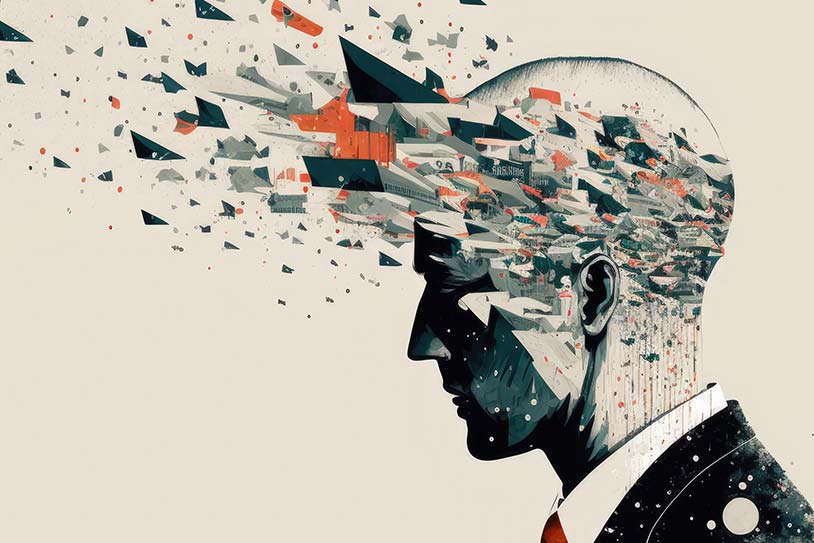
Every single day we make hundreds sometimes thousands of tiny choices. What to eat for breakfast, which shirt to wear, whether to answer an email now or later. It doesn’t feel dramatic at first, but each decision uses a little bit of mental energy. Over hours and days, that energy can run low. At Stenzel Clinical, we get asked a lot: is this real? Can making choices actually make my brain tired?
Short answer: yes, decision fatigue is a real experience for many people. Researchers and clinicians describe it as the drop in the quality of decisions after you’ve made many decisions in a short time. The idea is that willpower and decision-making draw on a limited pool of cognitive resources; when that pool gets low, choices become harder, you may put off decisions, or you may make impulsive or careless choices.
Below we explain how decision fatigue shows up, why it happens, and most importantly five practical ways you can protect your mental energy and make better choices.
How decision fatigue looks in daily life
Decision fatigue doesn’t always look the same for everyone. Common signs include:
- Feeling overwhelmed by even small choices.
- Putting off decisions you normally wouldn’t avoid.
- Making snap or impulsive choices (buying something you didn’t plan on, for example).
- Reduced patience, irritability, or fuzzy thinking late in the day.
We all know the classic examples: shoppers making impulse purchases after long trips through stores, or professionals who seem less patient or more severe with decisions later in their workday. Those patterns reflect the kind of cognitive wear-and-tear decision fatigue describes.
Why it happens: the main causes
Several everyday factors speed up decision fatigue:
- Too many choices (choice overload): The more options you have, the more your brain has to compare and weigh them. That wears you down.
- High-stakes thinking or complex problem solving: Big mental tasks use a lot of energy; they reduce the resources available for routine decisions.
- Poor sleep, hunger, or stress: When your body is tired or running on low fuel, your brain has less capacity to do heavy thinking.
- Constant media and information flow: Nonstop notifications and news can fragment attention and accelerate mental exhaustion.
It’s also important to note that research about decision fatigue is nuanced. Some studies show clear effects; others point out limits in how the concept has been tested. That means while lots of people notice these patterns in real life, scientists continue to refine how we measure and understand them. Still, the practical takeaway is useful: many strategies that reduce daily decision load help people feel and perform better.
5 Ways to Overcome Decision Fatigue (what we recommend)
We’ll keep this simple and practical. These five strategies are ones we teach and use at Stenzel Clinical, and they are backed by both clinical advice and research.
1) Simplify and automate routine choices
Pick a few decisions you can lock in ahead of time. Examples: set a morning outfit routine, make a weekly meal plan, use automatic bill pay, and create shopping lists. When you remove small choices, you preserve energy for important ones. This strategy making fewer decisions by streamlining choices is recommended by clinicians and health professionals alike.
How to start: Choose three daily routines you do every day (morning, lunchtime, evening). Make one small rule for each that removes indecision. For example: “Weekday breakfast = oatmeal or eggs,” or “Pick clothes the night before.”
2) Time big decisions for when your brain is freshest
We all have times of day when we think best. For many people that’s in the morning after sleep. Schedule important decisions, job interviews, financial choices, difficult conversations for when you are rested and alert. Save routine or low-stakes tasks for the later part of the day.
How to start: Block one or two “decision windows” in your calendar when you feel most clear-headed. Use those windows for the decisions that matter most.
3) Build habits and guardrails
Habits reduce the number of decisions your brain must make. A habit is a pre-decided action you follow automatically. Guardrails are simple rules that keep you from second-guessing yourself (for example: “Only social media between 7–8 p.m.” or “No impulsive online purchases without a 24-hour wait”).
How to start: Pick a small habit you want to form (hydrating in the morning, a 10-minute walk after lunch). Repeat it for at least two weeks and minimize friction (put your walking shoes by the door).
4) Protect your body sleep, food, and breaks matter
Decision-making is biological. When you don’t sleep well, skip meals, or work through long stretches without breaks, your brain’s ability to weigh options drops. Regular sleep, balanced meals, and short breaks help preserve cognitive energy and emotional control. Think of rest and nutrition as decision support systems for your brain.
How to start: Schedule a short break every 60–90 minutes during focused work. Prioritize 7–9 hours of sleep most nights and keep a healthy snack available when you’re doing heavy thinking.
5) Delegate, use tools, and ask for support
You don’t have to make every choice yourself. Delegate tasks at work and at home, use technology (calendars, autopay, task managers), and lean on trusted people when a decision is emotionally heavy. When decisions are linked to anxiety or overwhelm, a therapist or coach can help you sort priorities and make values-aligned choices. Clinicians often advise delegating low-impact decisions so patients can conserve energy for what truly matters.
How to start: Identify two tasks you can hand off this week maybe grocery delivery, laundry service, or delegating a work task and set up one tech automation (e.g., autopay or a recurring calendar reminder).

Putting the five strategies together a simple plan you can try
Try this one-week experiment:
- Monday: Choose three routines to simplify (breakfast, outfit, and evening wind-down).
- Tuesday: Block a morning decision window for important tasks.
- Wednesday: Introduce one small habit (10-minute walk).
- Thursday: Schedule two 10-minute breaks and plan meals.
- Friday: Delegate one household chore or work task and turn on autopay for a bill.
Track how your focus, mood, and decision comfort change during the week. Small changes add up quickly.
When to seek more help
If decision-making problems are tied to anxiety, depression, PTSD, or other mental health conditions, you may find that the underlying condition is draining your mental energy. In those cases, decision fatigue doesn’t simply go away with routines or autopay treatment that addresses the root condition helps. Therapy can provide structure, coping skills, and support to rebuild decision stamina. If decision-making struggles cause serious problems in your life (missed bills, frequent risky choices, relationship strain), reach out to a mental health professional.
A few myths and cautions
- Myth: You must eliminate all choices to avoid fatigue.
- Reality: You only need to reduce non-essential choices. The goal is not a robotic life, but freeing energy for what matters.
- Myth: Decision fatigue is only about willpower.
- Reality: It’s not moral weakness, it’s a normal result of cognitive load, stress, poor sleep, and insufficient supports. Being strategic helps, not blaming yourself.
Final thoughts… protect your mental energy like you protect your time
Decision fatigue is a useful way of naming something many of us feel: our brain runs out of steam. The useful part is that it’s also manageable. Simplifying routines, scheduling important decisions, building habits, taking care of your body, and using supports let you conserve energy for choices that matter.
At Stenzel Clinical, we teach practical strategies and help people build routines that match their lives and values. If you’d like support planning to reduce decision load, or if decision-making difficulties are tied to anxiety or mood problems, we’re here to help. Simple changes can make a big difference in how clear, calm, and confident you feel when decisions come up.
“It’s also important to note that research about decision fatigue is nuanced. Some studies show clear effects; others point out limits in how the concept has been tested.
Stenzel Clinical Services
Recent Posts
Reclaiming the Savanna Brain
In the modern world, we are surrounded by an abundance of food, safety, and information. Yet, paradoxically, we are [...]
Navigating Digital Distractions
You settle in to tackle the work you've been putting off, but interruptions are guaranteed. First, the inevitable: your [...]
Common Therapy Myths That Keep People From Getting Help
There are a lot of stories people tell themselves about therapy that stop them from reaching out. Some of [...]



